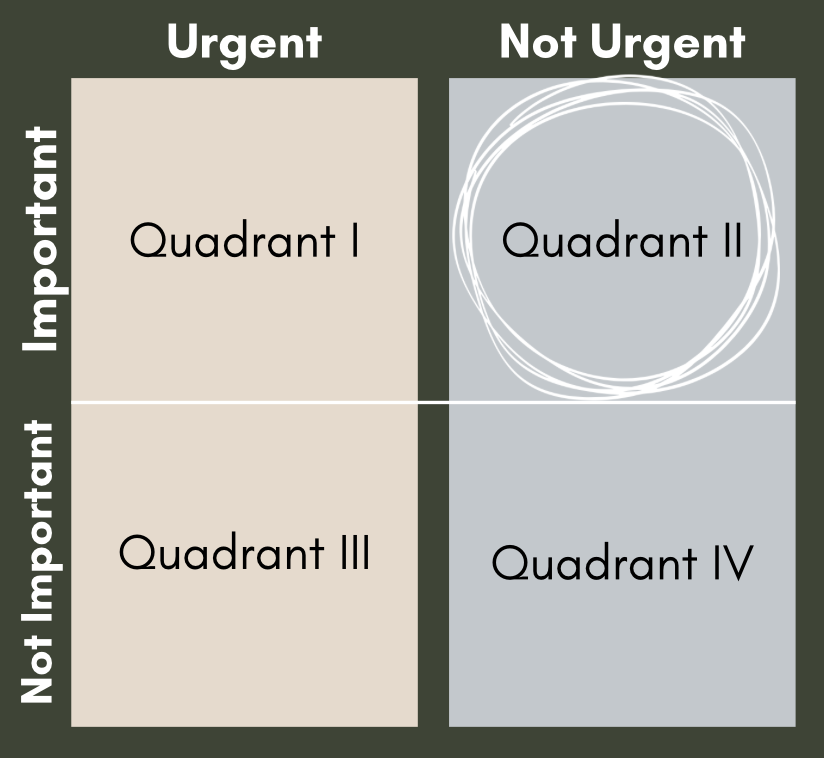Keeping the Main Thing the Main Thing
One of the many snippets of insight from Stephen R. Covey’s book “The 7 Habits of Highly Effective People” includes the idea to “put first things first.” The idea being that you should be proactive in using your principles to drive the most important things in your life. By design, other less important things will be de-prioritized, and that’s the point. Spend less time on the things that don’t serve you or just aren’t your top priority.
The matrix of Important vs Urgent (from the book) looks like this:
· Quadrant I – Think of these like crises or deadline-driven projects. We will run into these from time to time, but the core of who we are cannot be defined by putting out fires all the time.
· Quadrant II – This is where we should spend time bolstering the simplicity and focus in our lives. If we’re not careful, more urgent (but less important) issues take away all our time, and the important issues in this quadrant are what define the contentment and satisfaction in our lives.
· Quadrant III – Issues in this bucket are time-sucks. They seem urgent in the moment, but provide little to no value to our lives. This is the discontent that I think drives modern life – marketers, for example, are excellent at shining a light here. Too much time in this zone leaves us without a feeling of control and direction in our lives.
· Quadrant IV – These activities are just a waste of time. I do think the items in this bucket can vary from person to person, but we should prioritize activities that support our values over whatever is in this bucket.
Where I would ask you to focus (and where simplicity coaching and accountability come in) is Quadrant II. We have to say “no” to other activities and thoughts, including some that seem urgent. This is not a license to eschew responsibilities you may have, but it is an invitation to prioritize with purpose the select things that speak to your heart.
While we may have different values and priorities, each person contributing their best in the areas that are most meaningful for them feels like a wonderful template for an inclusive, cooperative society.
